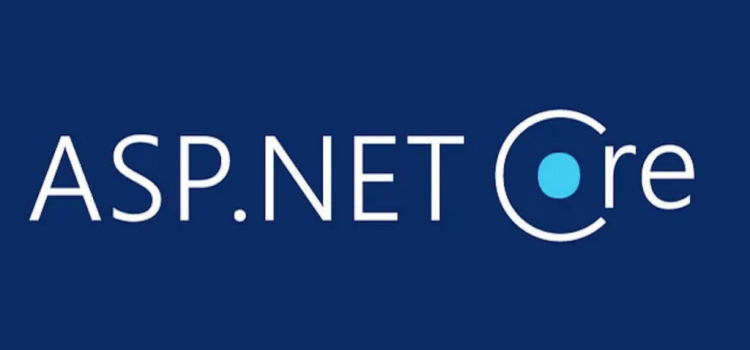
Introduction
ASP.NET Core is one of the fastest-growing frameworks for building web applications and services. Companies everywhere are looking for skilled developers who can use ASP.NET Core to create fast, secure, and scalable solutions. If you want to land a high-paying ASP.NET Core job, you need more than just basic coding knowledge. Today, we’ll explore the top skills employers value most—from technical expertise to soft skills so you can stand out in a crowded field and boost your salary potential.
Rise of ASP.NET Core Jobs
In recent years, demand for ASP.NET Core developers has grown fast. Companies of all sizes—from startups to large enterprises—need web apps that run smoothly on Windows and Linux. Microsoft’s strong support and regular updates keep ASP.NET Core modern and secure. As more businesses move online, they choose this framework for its speed and flexibility. This surge in cloud services and cross-platform needs has made ASP.NET Core expertise a hot ticket in today’s job market.
Benefits of Mastering ASP.NET Core Skills
Knowing ASP.NET Core brings clear career benefits. You can build web APIs, web pages, and real-time services using a single, unified framework. Strong performance and built-in security features mean your code runs faster and safer. Mastery of this stack opens doors to high-paying roles in finance, healthcare, and e-commerce. Employers value its tight integration with Azure and Visual Studio, so you gain hands-on experience with leading cloud and development tools.
Role of Core Skills in ASP.NET Development
Key skills act as the backbone of any ASP.NET Core role. Understanding C# syntax and .NET libraries helps you write clean, maintainable code. Knowledge of Entity Framework Core lets you manage databases with ease. Familiarity with Razor Pages or MVC architecture guides you in structuring scalable web apps. Proficiency in dependency injection and middleware shows you can design flexible systems. Finally, experience with RESTful APIs and JSON ensures you can connect front-end and back-end components smoothly.
Top Skills You Need to Land High-Paying ASP.NET Core Jobs
1. Mastery of C# and .NET Core Basics
At the heart of every ASP.NET Core role is strong proficiency in C# and the .NET Core platform. Key areas to focus on include:
- C# Syntax and Features: Generics, LINQ, async/await, and pattern matching.
- .NET Core CLI: Creating, building, and running projects via the command line.
- Runtime and Framework: Understanding how the .NET Core runtime differs from the .NET Framework.
- Cross-Platform Development: Writing code that runs on Windows, macOS, and Linux.
Employers expect you to solve problems quickly using these fundamentals, so practice coding challenges and small projects until you’re comfortable.
2. Building and Consuming Web APIs
Most modern applications rely on Web APIs to communicate between front ends, mobile apps, and microservices. Essential skills include:
- ASP.NET Core MVC & Web API: Routing, controllers, action results, and middleware.
- JSON Serialization: Using
System.Text.JsonorNewtonsoft.Jsonfor data exchange. - Versioning and Documentation: Implementing API versioning and using Swagger/OpenAPI for docs.
- Error Handling: Global exception filters and consistent error responses.
Being able to design clean, RESTful APIs and integrate them into applications is a must for ASP.NET Core developer roles.
3. Entity Framework Core and Data Access
Data is at the core of business logic. Employers look for developers who know how to work with databases effectively:
- EF Core Basics: DbContext, DbSet, migrations, and model configuration.
- Query Optimization: Writing efficient LINQ queries and understanding SQL execution plans.
- Database Providers: Working with SQL Server, PostgreSQL, or MySQL.
- Advanced Features: Raw SQL queries, stored procedures, and shadow properties.
Solid EF Core skills mean you can build data-driven applications that perform well and scale smoothly.
4. Front-End Fundamentals
Though ASP.NET Core developers focus on server-side code, basic front-end skills are crucial:
- HTML5 & CSS3: Structuring pages and applying responsive layouts.
- JavaScript and Frameworks: Understanding vanilla JS and frameworks like React, Angular, or Vue.js.
- Razor Pages & Blazor: Server-side rendering with Razor syntax and full-stack C# with Blazor.
- AJAX and Fetch API: Making asynchronous calls to your Web API.
Being able to integrate back-end code with a clean, user-friendly front end sets you apart in interviews.
5. Dependency Injection and Middleware
ASP.NET Core was built with dependency injection (DI) and middleware at its core. You should know how to:
- Configure Services: Registering and consuming services in
Startup.cs. - Custom Middleware: Writing middleware for logging, authentication, or error handling.
- Service Lifetimes: Differences between singleton, scoped, and transient services.
- Pipeline Order: Controlling the request/response flow.
Clear understanding of DI and middleware gives you the power to build modular, testable, and maintainable applications.
6. Security Best Practices
Security is non-negotiable. High-paying roles demand developers who can safeguard applications:
- Authentication & Authorization: Implementing Identity, JWT, and OAuth2.
- Data Protection: Encryption, hashing passwords, and securing sensitive data.
- OWASP Top 10: Mitigating common threats like XSS, CSRF, and SQL injection.
- HTTPS & CORS: Enforcing secure connections and proper cross-origin policies.
Demonstrating strong security knowledge reassures employers you can protect their data and users.
7. Testing and Quality Assurance
Writing code is just the start—ensuring it works is equally important. Focus on:
- Unit Testing: Using xUnit or NUnit for service and controller tests.
- Integration Testing: Testing Web API endpoints with in-memory servers or test databases.
- Mocking: Using Moq or built-in mocking tools to isolate dependencies.
- Continuous Integration (CI): Automating tests in pipelines like GitHub Actions or Azure DevOps.
Employers pay premiums for developers who proactively write and automate tests to catch bugs early.
8. Cloud Deployment and DevOps
Deploying code to the cloud is a high-value skill. Learn how to:
- Azure App Services: Deploy and manage ASP.NET Core apps in Azure.
- Containers and Docker: Containerize applications and orchestrate with Kubernetes or Azure AKS.
- Infrastructure as Code: Use ARM templates or Terraform for consistent environments.
- CI/CD Pipelines: Automate builds, tests, and deployments with Azure DevOps, GitHub Actions, or Jenkins.
Cloud and DevOps expertise lets you deliver reliable applications at scale, a key requirement for high-paying ASP.NET Core jobs.
9. Performance Tuning and Monitoring
Applications must run fast and stay healthy. Show you can:
- Caching: Use in-memory, distributed (Redis), or response caching.
- Profiling Tools: Use Application Insights or third-party profilers to find bottlenecks.
- Logging: Implement structured logging with Serilog, NLog, or built-in logging providers.
- Metrics and Alerts: Set up health checks and alerts to monitor uptime and performance.
Demonstrating you can optimize and monitor apps in production signals you’re ready for enterprise-level work.
10. Soft Skills and Teamwork
Technical skills get your foot in the door, but soft skills keep you and your team thriving:
- Communication: Explaining complex ideas in simple terms to stakeholders.
- Problem-Solving: Breaking down large issues into manageable tasks.
- Collaboration: Working in agile teams, attending stand-ups, and using tools like Jira or Trello.
- Adaptability: Learning new technologies quickly and applying them effectively.
Employers value developers who not only code well but also fit into a team and drive projects forward.
Challenges in Learning and Applying ASP.NET Core
Despite its strengths, ASP.NET Core has a learning curve. Beginners often struggle with its many project templates and startup configurations. Keeping up with frequent framework updates and new packages requires ongoing study. Debugging complex dependency graphs and middleware pipelines can feel tricky at first. You also need to learn related tools like Docker, Git, and CI/CD pipelines to match real-world workflows. Overcoming these hurdles takes practice, patience, and active participation in developer communities.
Future of ASP.NET Core Careers
Looking ahead, ASP.NET Core will keep evolving with new features and broader platform support. .NET 7 and beyond promise even better performance, simplified hosting, and enhanced cloud integration. Demand for microservices and containerized apps will make skills in Docker and Kubernetes more valuable. AI-driven coding assistants will speed up routine tasks, letting you focus on architecture and user experience. By pairing ASP.NET Core expertise with trending skills—like DevOps and serverless—you’ll stay ready for top roles in 2025 and beyond.
Conclusion
Landing a high-paying ASP.NET Core job requires a blend of deep technical knowledge and strong soft skills. By mastering C#, Web API, Entity Framework Core, front-end basics, dependency injection, security best practices, testing, cloud deployment, performance tuning, and teamwork, you’ll position yourself as a top candidate. Keep learning through online courses, contribute to open-source projects, and build a solid portfolio. With these skills under your belt, you’ll not only meet but exceed employer expectations—opening doors to lucrative, rewarding ASP.NET Core positions.










